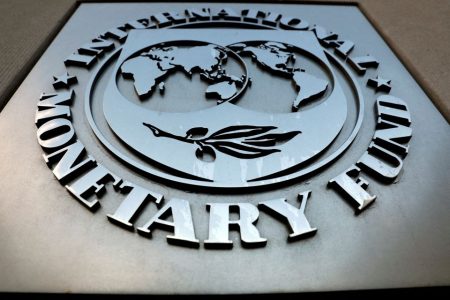10 October 2014 – THE International Monetary Fund IMF has warned Countries in the West African region including Nigeria to use the money borrowed from external sources on projects that will enable them recover the cost and pay back such debt.Answering reporters question at the ongoing IMF/World Bank Group Meeting in Washington, the IMF Deputy Director Fiscal Affairs Department Mr Sanjeev Gupta said “What we have noticed in many countries, is that increases in borrowing has not necessarily been accompanied by higher spending on infrastructure on the capital side, but has been accompanied by increase in spending on the current side. So that has an impact on the ability to pay this debt.
 “So, that is one of the aspects of borrowing from abroad. Essentially one of the points which the fiscal monitor makes is that there is a need to improve the fiscal governance related to external borrowing in a number of countries, which means there should be allocation of resources, there should be efficient use of resources that are borrowed, so that the countries are able to grow, which is the purpose of that borrowing and repay those funds”.
“So, that is one of the aspects of borrowing from abroad. Essentially one of the points which the fiscal monitor makes is that there is a need to improve the fiscal governance related to external borrowing in a number of countries, which means there should be allocation of resources, there should be efficient use of resources that are borrowed, so that the countries are able to grow, which is the purpose of that borrowing and repay those funds”.
Nigeria it will be recalled has been borrowing from the international capital market in recent time. Nigeria has floated a $1 billion Eurobond, it has borrowed another $1billion to prosecute the war against Boko Haram.
The federal budget despite these borrowing has been 75 percent recurrent, with capital taking just 25 per cent.
The borrowing spree has also open the gate for Nigerian banks to raise funds from the international capital market.
According to the Guardian from March 2013 to June 2014, Nigeria external public debt jumped by 40 per cent from $6.7 billion to $9.38 billion while domestic public debt increased by 37 per cent from N6.5 trillion to N8.9 trillion.
The combined external and domestic debt as a proportion of the rebased GDP is about 12.51 per cent. The private sector has responded with great enthusiasm. Since 2009, 23 Nigerian companies have issued bonds to raise N223 billion domestically.
DMO in statement indicated that Nigerian firms had so far raised over $30 billion from the international market to expand their operations. Remarkably, the ratio of the issued external bonds or debts to domestic bonds raised by the private sector is 24:1. That ratio throws in a caveat: Nigeria’s experience drives home the fact that the private sector’s external debts translate into external national debt.
The country’s previous problematic external debt arose largely from non-repayment by Nigerian companies for genuine and trumped-up commercial transactions with foreign firms.
But the eventual repayment of the debts was exacted Shylock-like by governments of the home countries of the foreign firms under the erstwhile London and Paris clubs of not creditor firms but creditor countries.
The known external national debt stands at $39.38 billion (that is N6.3 trillion). Also domestic bonds issued by private sector companies contribute to the national debt burden until they are redeemed.
Without splitting hairs, the take-over of bank toxic assets (which were not even bonds) by the Asset Management Corporation of Nigeria, (AMCON) is enough proof. Thus AMCON’s N5.7 trillion bonds plus the earlier noted private sector domestic bonds together with the DMO’s public sector domestic debt put the inferable domestic component of NDB at N14.8 trillion.
The resultant combined external and domestic debt figure of N21.1 trillion represents 26.38 per cent of the rebased 2013 GDP thereby overshooting the recommended national debt threshold. Even then, that high debt ratio is but a subtotal of the NDB under which the economy labours.



